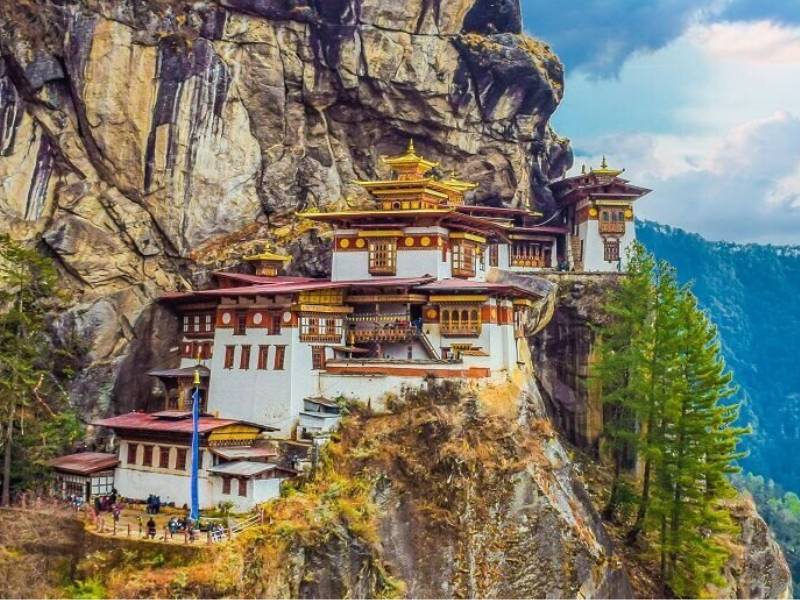Christians Worship Without Churches in a Tiny Asian Hermit Kingdom

7/7/2025 Bhutan (International Christian Concern) – There aren’t many reports of Christians being attacked in Bhutan. For that matter, news of any sort from Bhutan is relatively scarce.
Nestled between the giants of China and India, this mountainous, landlocked nation of 800,000 people has remained quite isolated from the rest of the world.
And yet Bhutan, an ostensibly serene little Buddhist hermit kingdom that emphasizes “Gross National Happiness,” currently ranks as more oppressive than Egypt toward Christians.
Bhutan’s first known contact with Christianity occurred almost exactly 400 years ago, when two Portuguese Jesuit priests came to evangelize. None of the locals, however, seemed to understand what the two priests were attempting to communicate.
Christianity began to gain traction in the latter part of the 20th century, mainly due to medical missions. More recent decades have seen a growing presence of Pentecostal Christianity, which is now likely the most common form of Christian worship.
Buddhists comprise more than 80% of the total population, and the remainder primarily consists of Hindus. Estimates typically place the Christian population between 1% and 2%.
It seems you must go back quite a few years to get a specific report of anti-Christian violence in Bhutan. But there is an ongoing, widespread sentiment that Christianity defies the country’s spiritual heritage and disturbs social unity. An added factor here is that most Christians in Bhutan are ethnic Nepalis.
Bhutan has a complicated relationship with its ethnic Nepali population, regardless of religion. Toward the end of the 20th century, many native Bhutanese became concerned that ethnic Nepalis were gaining too much influence within their country.
So, the Bhutanese government, ignoring any international protocol, began rescinding the citizenship of more than 100,000 ethnic Nepalis (which is no small number in a country with less than 1 million persons overall), then seizing their property and expelling them from the country.
Bhutan, which has never had any colonial master, will go to great lengths to keep the outside world at bay.
Earlier in the 21st century, the opening of bars and nightclubs was considered controversial in Bhutan. But such establishments do not stir up as much controversy as the prospect of having a Christian church.
No Christian churches have received official approval; therefore, Christian worship must take place in private settings.
Shortly after a new king ascended to the Bhutanese throne in 2008, the country undertook reforms, including the adoption of a new constitution, which, among other provisions, guaranteed freedom of religion.
However, an exiled former Bhutanese politician has remarked that these reforms are “done on paper” and have not yet brought meaningful change on a societal level.
True individual freedoms in Bhutan could be a long time coming. During the last few years, the country has experienced a significant decline in press freedom. And the most recent international press freedom ranking saw Bhutan drop to its lowest recorded point.
Amid the repression, there is something pristine about Bhutan, one of the last places on earth with a carbon-negative footprint.
Aside from unpolluted air, Bhutan is home to many elaborate and beautiful Buddhist temples.
“And to some extent Hindu temples as well … but no church,” said “Andrew,” whose real name is being withheld for security reasons. Andrew is a Christian who lives in India near the border with Bhutan and has contact with Bhutanese Christians.
He is one of several Christians from India who discreetly minister to the faithful in their tiny neighboring country.
Evangelism is not allowed. Christians from other countries who engage in such activities “have to be very careful not to get caught,” Andrew said.
Bhutan has a record of imprisoning pastors, although they can often obtain release after paying a substantial fine.
Andrew said that Christians in Bhutan have “some freedom of religion, but they are not given full rights,” and “they are monitored.” He added that he doesn’t know any Bhutanese Christians who have suffered a religiously motivated physical attack or seizure of property. Still, he said that some Bhutanese Christians have complained of diminished employment opportunities, particularly regarding government jobs.
Christians in Bhutan have also expressed their frustration that they are unable to secure burial plots for deceased believers. Though not explicitly stated by law, there is a mindset that dead bodies in Bhutan should be cremated.
Despite restrictions, whether official or otherwise, there is an active Christian community in Bhutan, and some underground churches can draw gatherings of more than 100 persons.
Andrew related that Christian worship is on the rise in Bhutan and that the government “is quite concerned about its growth.”
As with most everything else in this country, any mistreatment of Christians tends to stay off the international radar.
“Believers in Bhutan are joyful as well as fearful,” Andrew said. “Joyful because they have put their faith in Christ. But fearful because of what tomorrow may bring to them.”
To read more news stories, visit the ICC Newsroom. For interviews, please email press@persecution.org.
For interviews, please email press@persecution.org
